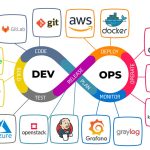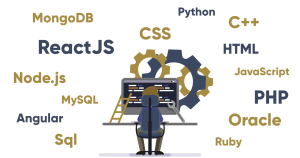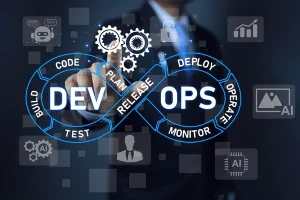In today’s fast-paced software development world, delivering quality applications quickly and reliably is crucial. This is where DevOps comes into play. DevOps is a set of practices that combines software development (Dev) and IT operations (Ops) to shorten the development lifecycle while maintaining high software quality.
DevOps emphasizes collaboration, automation, and continuous integration/continuous deployment (CI/CD). By automating repetitive tasks like testing, building, and deployment, developers can release updates faster and with fewer errors. It also fosters a culture of shared responsibility between development and operations teams, breaking down traditional silos.
For full stack developers, understanding DevOps tools and workflows—like Docker, Kubernetes, Jenkins, and cloud services—is essential. These skills help you not only write code but also deploy, monitor, and maintain your applications efficiently in real-world environments.
Key Points:
-
Collaboration: DevOps bridges the gap between development and operations teams to work together seamlessly.
-
Automation: Automates repetitive tasks such as testing, building, and deployment to speed up delivery.
-
Continuous Integration/Continuous Deployment (CI/CD): Enables frequent, reliable code integration and deployment to production.
-
Infrastructure as Code (IaC): Manages infrastructure through code for consistency and scalability (e.g., Terraform, Ansible).
-
Monitoring and Logging: Tracks application performance and system health to detect and resolve issues quickly.
-
Popular Tools: Docker (containerization), Kubernetes (orchestration), Jenkins (CI/CD), AWS/Azure/GCP (cloud platforms).
For full stack developers, mastering DevOps practices and tools is essential to not only build applications but also deploy, monitor, and maintain them efficiently.








